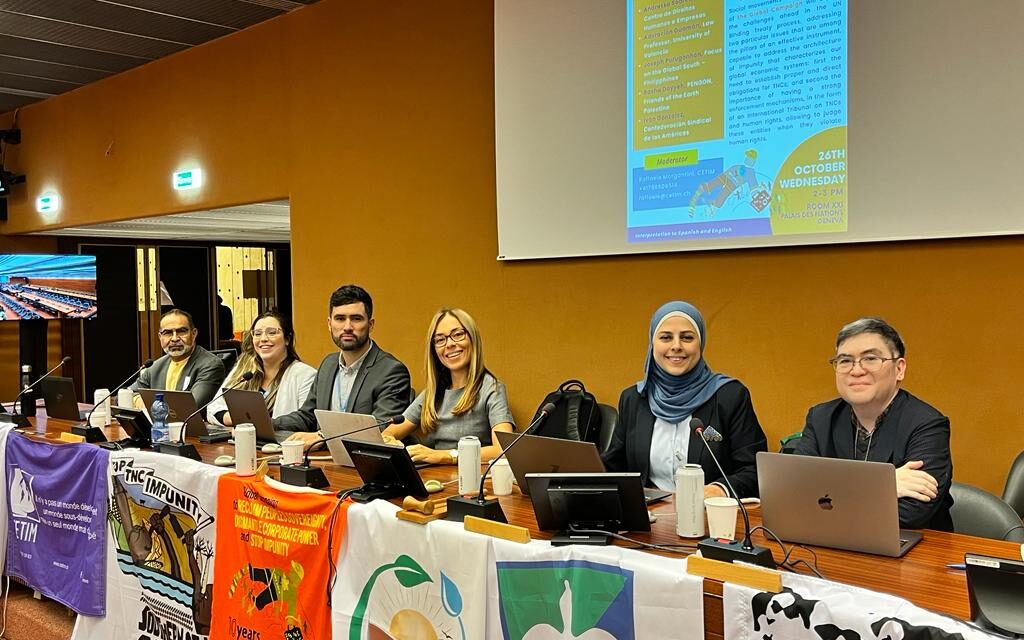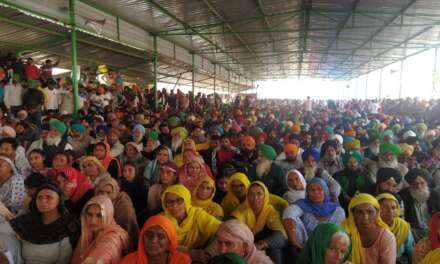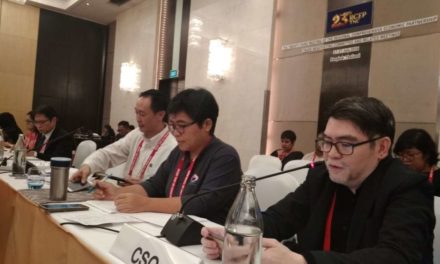A Perspective from Asia*
By Joseph Purugganan, Focus on the Global South/Asia Task Force a member of the Global Campaign
In 2014, 6 Asian states voted in favor of Resolution 26/9 (China, India, Indonesia, Pakistan, Philippines, Vietnam). This positive vote we feel was in response to two critical developments. First is the rising cases of human rights violations committed by transnational corporations; and second, the rising power of corporations including the power of corporations to sue States in undemocratic corporate courts via investor state dispute settlement mechanisms embedded in trade and investment agreements.
These two imperatives must also be located in the increasing focus on Asia as a hub of economic development. The push for trade and investment agreements and Asia as a factory of the world, as a source of raw materials and cheap labor.
Number of emblematic cases- such as the Marcopper mine spill in the Philippines in 1996 , or more recently the Rana Plaza in Bangladesh in 2013. These are just two emblematic examples of how corporate neglect and greed have resulted in loss of lives and irreparable damage to the environment .As we commemorate 26 years of Marcopper, and almost 10 years of Rana plaza, the sad reality is that justice for victims has remained elusive.
As noted by the Transnational Institute : “TNCs are able to evade national jurisdictions because of their transnational character, and the unprecedented economic, financial and political power they command, their economic and legal flexibility, and the complex structures they use to carry out their operations. Impunity therefore typically prevails, especially when the affected communities and peoples are in the Global South.”
In pushing for Reso 26/9 States recognized the imperatives as stated :
- The increasing cases of human rights violations and abuses by some Transnational Corporations
- the UN Guiding Principles on Business and Human Rights” as an important “first step” but a legally binding instrument is important in order to “provide a framework for enhanced State action to protect rights and prevent the occurrence of violations
- clarify the obligations of transnational corporations in the field of human rights, as well as of corporations in relation to States, and provide for the establishment of effective remedies for victims in cases where domestic jurisdiction is clearly unable to prosecute effectively those companies.
Fast forward to 2022
It has been almost a decade and after 7 intergovernmental working group session, civil society organizations and movements are still actively engaged and pushing the process for a legally binding instrument. The reasons for this are plain and simple. The violations continue to happen, TNCS continue to evade responsibility; and communities continue to seek justice. The continuing human rights crisis arising from the operations of TNCs has also shown the inadequacy of voluntary mechanisms like the UNGP, and thus as many have pointed out yesterday the need for stronger regulations.
At the core of this clarion call for a strong and effective legally binding instrument are the proposals advanced by the global campaign on direct obligations for TNCs and the need for an international tribunal to enforce these obligations.
We should not buy the idea being pushed by corporations in these negotiations against direct obligations for TNCs, and that human rights obligations be limited to States, and that in fact States should hold the hand of these corporations, provide them with incentives and support to comply with the new rules; when in the case of ISDS they exert their iron hand to challenge public policies, particularly those that seek to regulate investments in the name of greater public good.
We need to point out again the asymmetry of law that exists here where corporations have the right and power to challenge States , seen as hard law under various trade and investment agreements; while affected people and communities do not have the recourse and have to rely on soft law.
Corporations do not want cases adjudicated outside national jurisdiction yet they insist on using these investment tribunals of the International Chamber of Commerce (ICC) or the International Center for Settlement of Investment Disputes (ICSID) headquartered in Washington DC to handle ISDS cases. On their own claims they conveniently argue that domestic courts particularly in the global south are not sufficient, are ineffective and corrupted to deal with corporate challenges against national legislations. Yet in cases against TNCs they seem to raise these national courts as the proper venues to handle these human rights violations and abuses.
Direct obligations for TNCs is therefore a core element of an effective LBI. This is not only based on existing international law but it’s right and just.
The road ahead for LBI and greater corporate accountability is urgent, necessary, difficult but not impossible.#
—
*Text of presentation made at the Global Campaign side event A Treaty to End Impunity: Direct Obligations for TNCs and an International Tribunal. 26 October. Geneva



![[CSIPM] Civil society and Indigenous Peoples’ organisations demand a globally coordinated policy response to tackle food crisis](https://focusweb.org/wp-content/uploads/2022/09/Front-cover-of-the-report-440x264.png)






